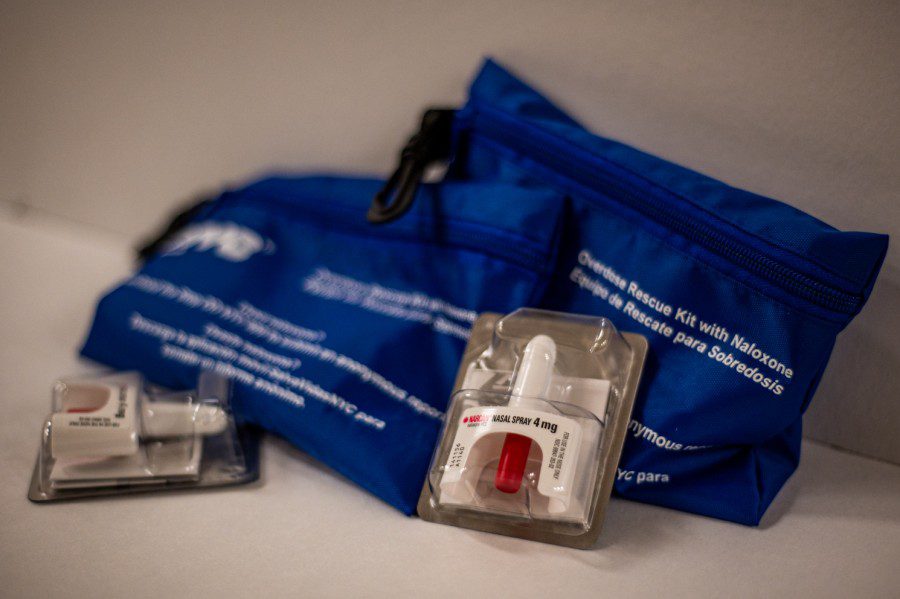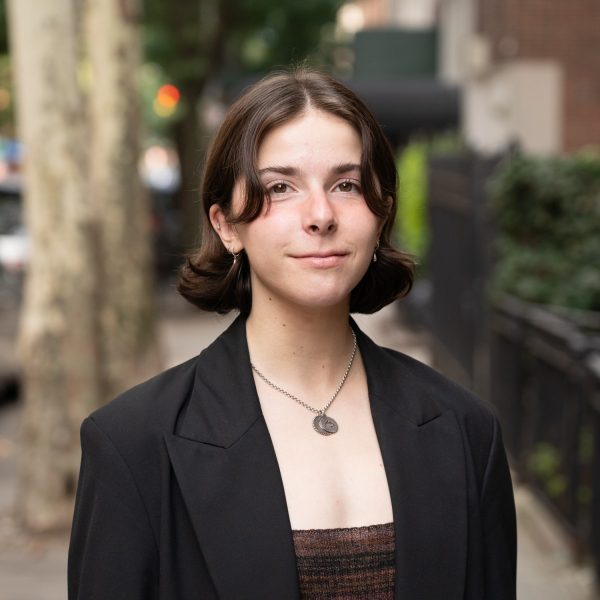Narcan coming to city bars and clubs, but access at NYU more limited
As Narcan becomes available at nightlife establishments, NYU students are calling for the drug to be more accessible on campus.
Naloxone is a medication that can save someone’s life by reversing the effects of an opioid overdose. The NYC Emergency Overdose Rescue Kit Program provides free naloxone at certain pharmacies and community-based programs. (Manasa Gudavalli for WSN)
October 27, 2022
Narcan, a drug that reverses opioid-induced overdoses, will soon be available to all New York City bars and clubs after Mayor Eric Adams authorized the city to provide it to nightlife establishments for free on Oct. 12. Though the drug is available at NYU through the Student Health Center, WSN spoke to students who say Narcan is difficult to access, and the university’s program is not widely publicized.
NYU students and employees must undergo university-specific training in order to access the medication, which is typically administered as a nasal spray. Other universities, including the University of Texas at Austin and Ithaca College, have responded to increases in opioid overdoses by providing Narcan without training requirements.
GLS senior Akir Stuart said he believes it is important for naloxone to be accessible at the university because it can help reduce the stigma associated with opioid use. A former opioid user himself, he added that he was not aware of the related resources the university offers.
“The fact that I don’t know already says enough about where those resources are — either they’re not there, or they’re not being made accessible enough for students,” Stuart said. “Having these kinds of resources within the university setting really allows young people to feel comfortable.”
Carlo Ciotoli, the director of the Student Health Center, confirmed that NYU students, faculty and employees who have completed the university’s naloxone training can pick up the medication for free from the center’s pharmacy. Ciotoli also said that training is only offered virtually this semester, and that an asynchronous option will be available on NYUiLearn, the university’s online training platform, in the spring.
“The Student Health Center is committed to tailoring our educational content, including our opioid education and naloxone training, to meet the specific needs of the NYU community,” Ciotoli said. “We are gathering feedback from community members who participate in the virtual trainings this fall, which we will carefully review, address, and integrate into the iLearn module before it is released next spring.”
A person died from an overdose in New York City every three hours during the third quarter of 2021, according to the city’s Health Department. Access to naloxone (the generic name for Narcan) has been shown to reduce these deaths.
Narcan is safe to use without a prescription, even if an overdose is not occuring. It is not possible to overdose on Narcan. Training is recommended by the National Institute on Drug Abuse, but individuals can use the nasal spray version without it — unlike alternatives that need to be injected.
Harm reduction resources are accessible across New York City. Eleven pharmacies in the city provide naloxone for free without a prescription. Community organizations including Housing Works and Freedom Institute also distribute the drug for free. The city has also opened two safe injection sites — spaces where individuals can use drugs under supervision and without fear of prosecution.
Tisch sophomore Bella Berg said that it is more difficult to access Narcan near campus compared to other neighborhoods such as Harlem and Washington Heights, where the city’s safe injection sites are located. Berg added that NYU should publicize that naloxone is available for those who complete training, noting how she has never seen the university advertise the drug.
“I’ve had friends use Narcan on other people and many of my friends carry it, though it’s not that easy to stock up on it, and I wish it was available more widely so that I could stock up and distribute to other folks,” Berg said. “Most places in New York City require you to go through a training before they can give it out to you, but it’s a lot easier for an NYU student to go to a training on-campus than it is to go to a training at a harm reduction site.”
Ciotoli said that the Student Health Center offers other drug use learning programs, including AlcoholEdu, a mandatory module about alcohol and drug use intervention, and the Substance Assessment, Feedback, and Evaluation Program, which allows students to address substance abuse with a mental health professional.
Gallatin sophomore Katie Nash said that she thinks that having Narcan available in dorms would be beneficial for students, and that it is counterproductive to ignore drug use on campus.
“It’s going to save an NYU student’s life at some point, and that is obviously a positive impact,” Nash said. “In a time when there are just so many opioids out there, especially in places where people are not expecting to get them, it’s always good to be prepared for the worst.”
Contact Carmo Moniz at [email protected].



























































































































































